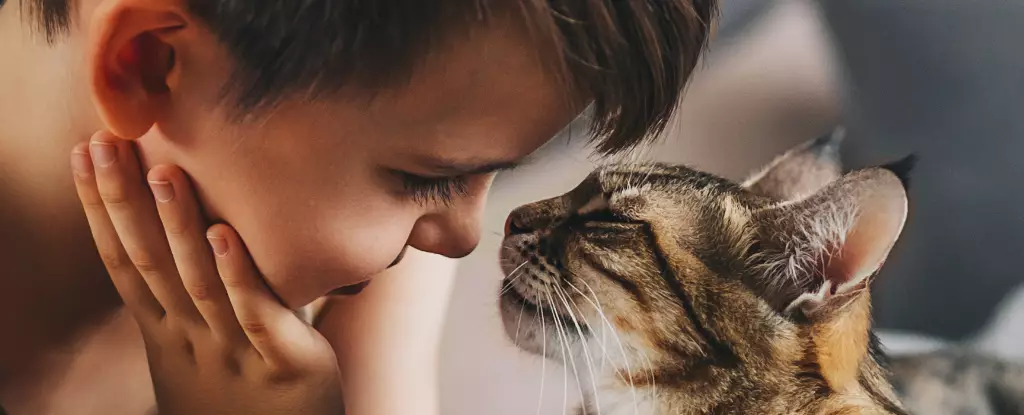Cats, often dubbed as enigmatic companions, have cohabited with humans for millennia, long before the advent of the digital age that birthed cat memes and amusing social media clips. This relationship, enigmatic yet affectionate, raises an intriguing question: what does research reveal about the impact of these furry friends on our mental and physical well-being? While embarking on the journey of cat companionship can yield notable benefits, it is equally essential to recognize the potential challenges inherent in this bond.
The Psychological Impact of Cat Companionship
The profound emotional connections between humans and cats are underscored in various studies, demonstrating that many cat owners perceive their feline companions as family members. An enlightening study involving 1,800 Dutch cat owners revealed that half of the respondents regarded their cats as integral parts of their family unit. Notably, one-third of these individuals saw their cats as akin to children or best friends, leading to feelings of loyalty and support that echo the dynamics of human relationships.
Interestingly, the emotional landscape of cat ownership is multifaceted. People who relate to their cats on a deeper, co-dependent level often report stronger emotional bonds. This contrasts with the more distant relationships some may have, categorized as casual or remote. The nurturing instincts activated by these bonds can provide emotional sustenance, fostering feelings of purpose and fulfillment in cat owners.
Studies indicate that the presence of pets can significantly mitigate feelings of social isolation. The simple act of caring for a cat offers a sense of responsibility and joy, enhancing the owner’s sense of meaning in life. Yet, understanding the dynamics of this relationship is not merely about surface-level associations; it requires a closer examination of individual experiences and emotional investments.
Health Benefits Associated with Cat Ownership
The implications of pet ownership extend beyond emotional support; studies suggest a correlation between cat ownership and reduced risks of serious health issues, particularly cardiovascular diseases. Notably, several studies have shown that individuals with cats exhibit lower incidences of heart disease and stroke. However, it is crucial to note that while these findings illustrate an association, they do not establish causality. Cat owners may lead healthier lifestyles or possess other characteristics that influence their well-being.
Furthermore, interesting developments regarding gut health have surfaced in relation to cat ownership. Research indicates that cat ownership might positively influence gut microbiota, potentially leading to improved blood glucose control and reduced inflammation, particularly in women. Emotional well-being is another contributing factor; interaction with pets like cats has been linked to higher psychological well-being. For individuals grappling with depression, engaging with their feline friends has been observed to lift spirits, albeit temporarily.
However, the relationship dynamics are complex and deeply personal. A qualitative research study involving veterans illustrated that despite lower mental health scores among those more attached to their cats, qualitative feedback highlighted the indispensable comfort provided by their pets. Such insights reveal how nuanced the interplay between mental health and pet ownership can be, suggesting that reliance on a cat may stem from a need for emotional support rather than an inherent benefit of the relationship.
Despite the numerous benefits tied to cat companionship, one must not overlook the potential downsides. In cases where a cat becomes ill, the emotional and physical burdens placed on the owner can lead to heightened levels of stress and anxiety. Research focusing on owners whose cats suffer from chronic conditions like epilepsy indicates that caregiving can critically interfere with day-to-day functioning for some individuals.
Moreover, the health implications of cat ownership can carry risks. Cats are known hosts for zoonotic diseases, such as toxoplasmosis, which can be transmitted to humans. While most individuals exhibit mild symptoms, the risks can escalate for pregnant women and those with compromised immune systems. Therefore, it is advisable for certain demographic groups to exercise caution when handling cat litter or interacting closely with cats.
Another aspect worth mentioning is the growing prevalence of cat allergies. As feline companions groom themselves, allergens from their saliva can become airborne or settle on surfaces, potentially triggering allergic reactions. For those not severely affected, effective cleaning practices can help mitigate symptoms, allowing them to enjoy coexistence with their cats.
The relationship between cats and their human companions is rich with complexity and nuance, offering both emotional rewards and potential challenges. While the benefits of cat ownership—ranging from enhanced emotional well-being to reduced risks of serious health issues—are significant, the inherent responsibilities and risks should also be considered. This multifaceted interaction ultimately shapes the unique dynamics of human-feline relationships, reminding us that while the company of a cat can bring joy and comfort, it comes with responsibilities that require awareness and understanding.


Leave a Reply